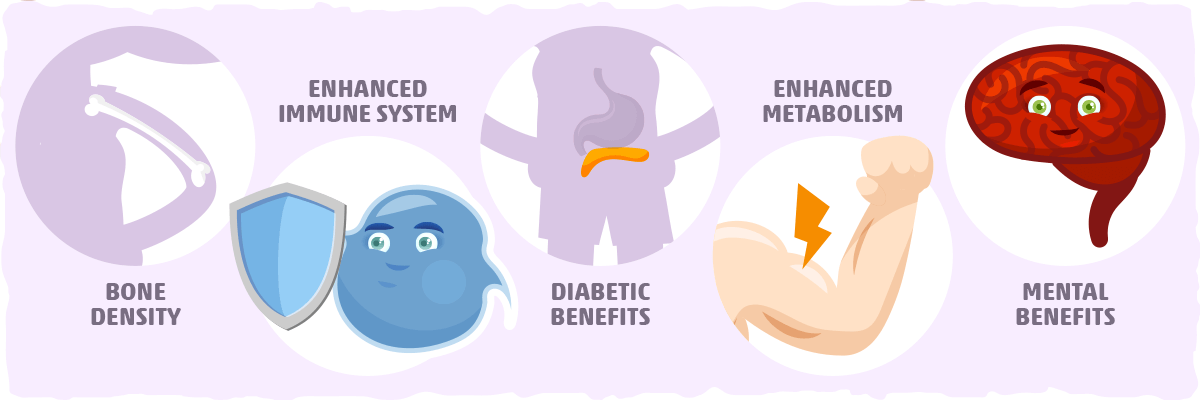
The Benefits of Endurance Exercise: Beyond Physical Fitness
Endurance exercise, often referred to as aerobic or cardio exercise, is a form of physical activity that involves sustained, rhythmic movements of large muscle groups for an extended period. Activities like running, swimming, cycling, and brisk walking fall under this category. While many people engage in endurance exercise to improve their physical fitness, the benefits extend far beyond just a trim physique. In this comprehensive article, we explore the wide-ranging advantages of endurance exercise for both physical and mental health.
1. Enhanced Cardiovascular Health
One of the most well-established benefits of endurance exercise is improved cardiovascular health. Regular aerobic exercise strengthens the heart muscle, making it more efficient at pumping blood and oxygen to the body’s tissues. It also helps to lower blood pressure, reduce resting heart rate, and improve circulation. These effects reduce the risk of heart disease, stroke, and other cardiovascular conditions.
2. Weight Management and Fat Loss
Endurance exercise is an effective tool for managing body weight and promoting fat loss. Engaging in activities like running or cycling increases calorie expenditure, helping individuals maintain a healthy body weight or shed excess pounds. Moreover, aerobic exercise enhances metabolism, making it easier to maintain weight loss over time.
3. Improved Respiratory Function
Aerobic exercise enhances lung capacity and efficiency. Regular practice helps the respiratory system deliver oxygen to the body’s cells more effectively. This can lead to increased stamina, reduced breathlessness during physical activities, and improved overall lung health.
4. Enhanced Mood and Mental Health
Endurance exercise has a profound impact on mental health. It stimulates the release of endorphins, which are natural mood lifters, leading to reduced feelings of stress, anxiety, and depression. Regular aerobic activity has been associated with improved cognitive function, including better memory, concentration, and problem-solving skills.
5. Increased Energy Levels
Contrary to the misconception that exercise depletes energy, endurance exercise actually boosts overall energy levels. Regular physical activity improves the efficiency of the body’s energy production systems, making individuals feel more energized and alert throughout the day.
6. Better Sleep Quality
Endurance exercise can help regulate sleep patterns and improve the quality of sleep. It can reduce the time it takes to fall asleep, increase the duration of deep sleep, and minimize sleep disturbances. Improved sleep is crucial for overall well-being and cognitive function.
7. Enhanced Immune Function
Moderate-intensity endurance exercise has been shown to enhance immune function by promoting the circulation of immune cells throughout the body. While intense or prolonged exercise can temporarily suppress the immune system, regular, moderate exercise helps reduce the risk of illness.
8. Reduced Risk of Chronic Diseases
Engaging in endurance exercise can significantly lower the risk of chronic diseases such as type 2 diabetes, certain types of cancer, and osteoporosis. It helps regulate blood sugar levels, reduce inflammation, and strengthen bones.
9. Increased Longevity
Numerous studies have suggested a link between regular endurance exercise and increased lifespan. Exercise not only reduces the risk of premature death from chronic diseases but also enhances overall vitality, allowing individuals to enjoy a higher quality of life in their later years.
10. Social and Psychological Benefits
Endurance exercise often provides opportunities for social interaction and a sense of belonging, especially when done in group settings. The camaraderie and support of exercise groups can contribute to improved self-esteem and a sense of purpose.
Conclusion
Endurance exercise offers a plethora of benefits that go beyond physical fitness. It positively impacts cardiovascular health, weight management, mental well-being, and overall quality of life. Moreover, the advantages extend to improved sleep, immune function, and a reduced risk of chronic diseases. To harness these benefits, it’s essential to incorporate regular endurance exercise into your lifestyle, tailored to your fitness level and preferences. Whether it’s a brisk walk in the park, a leisurely bike ride, or training for a marathon, the rewards of endurance exercise are well worth the effort.



